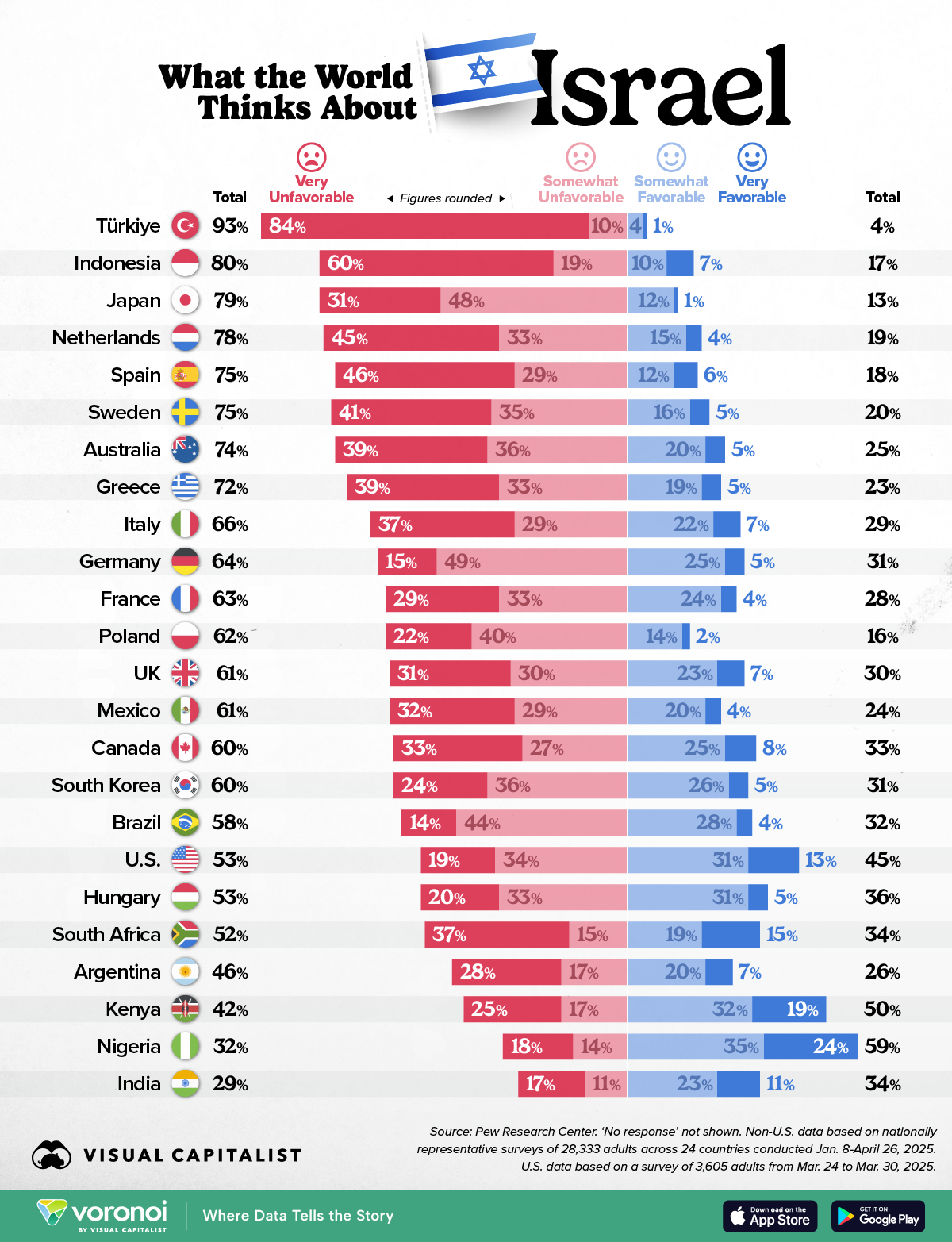By Marcus Lu
July 11, 2025

Key Takeaways
- Among the 24 countries surveyed in early 2025, the majority of respondents had a negative view of Israel (median 62%).
- Just three countries had more positive responses than negative: India, Kenya, and Nigeria.
In a world increasingly shaped by shifting alliances and global conflict, public opinion is a useful measure of diplomatic standing.
In this graphic, we visualize international views on Israel based on a 24 country survey conducted in 2025. The data suggests that Israel faces disapproval across many parts of the globe, with only a handful of nations offering more positive than negative perceptions.
The data for this visualization comes from the Pew Research Center.
It explores attitudes toward Israel across 24 countries, measuring both unfavorable and favorable responses. Median averages show that 62% hold an unfavorable view of Israel, with only 29% expressing favorable opinions. Note that those who did not answer were not shown.
Türkiye reported the highest share of negative views, with 93% of respondents holding an unfavorable opinion of Israel. This includes a decisive 84% who said they view Israel “very unfavorably.”
International views of Israel are also quite negative throughout most of Europe and Asia, particularly in Indonesia (80% total unfavorable) and Japan (79% total unfavorable).
Reasons for these results likely include support for Palestine, anti-war attitudes, and religious solidarity. Indonesia, for example, has the world’s largest Muslim population in the world.
Countries That View Israel Positively
Only three countries from this survey had a majority of respondents expressing favorable opinions: Nigeria (59%), Kenya (50%), and India (34% favorable vs. 29% unfavorable). These nations stand out as outliers, possibly due to different geopolitical alignments or media narratives. Note that India has the highest share of non-responses, at 37%.
We remind our readers that publication of articles on our site does not mean that we agree with what is written. Our policy is to publish anything which we consider of interest, so as to assist our readers in forming their opinions. Sometimes we even publish articles with which we totally disagree, since we believe it is important for our readers to be informed on as wide a spectrum of views as possible.










